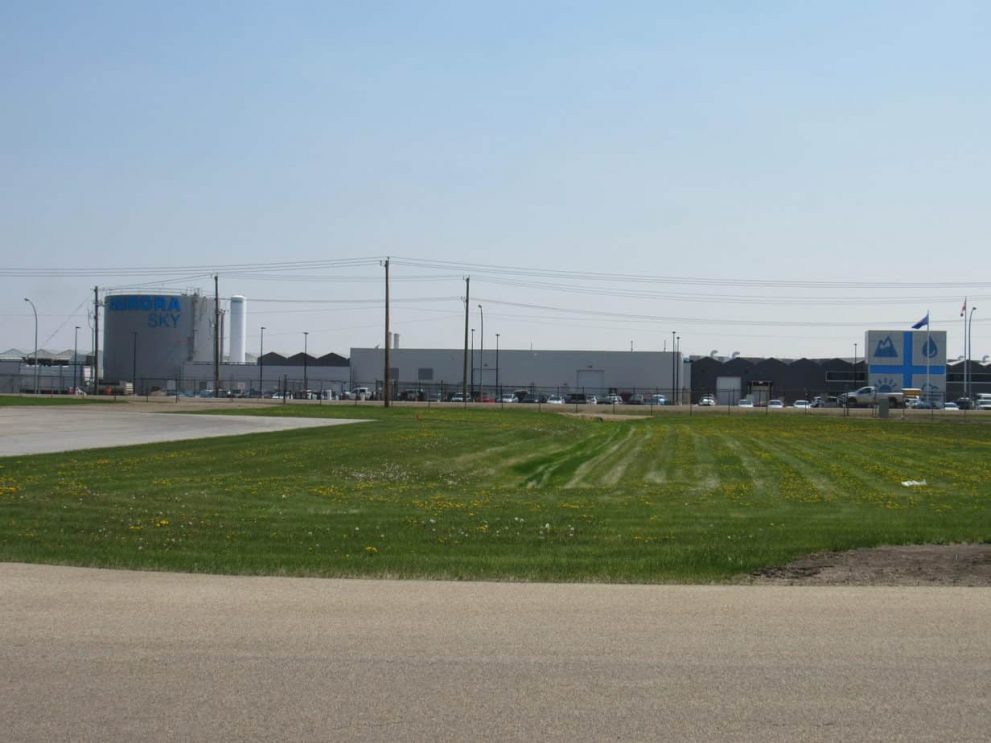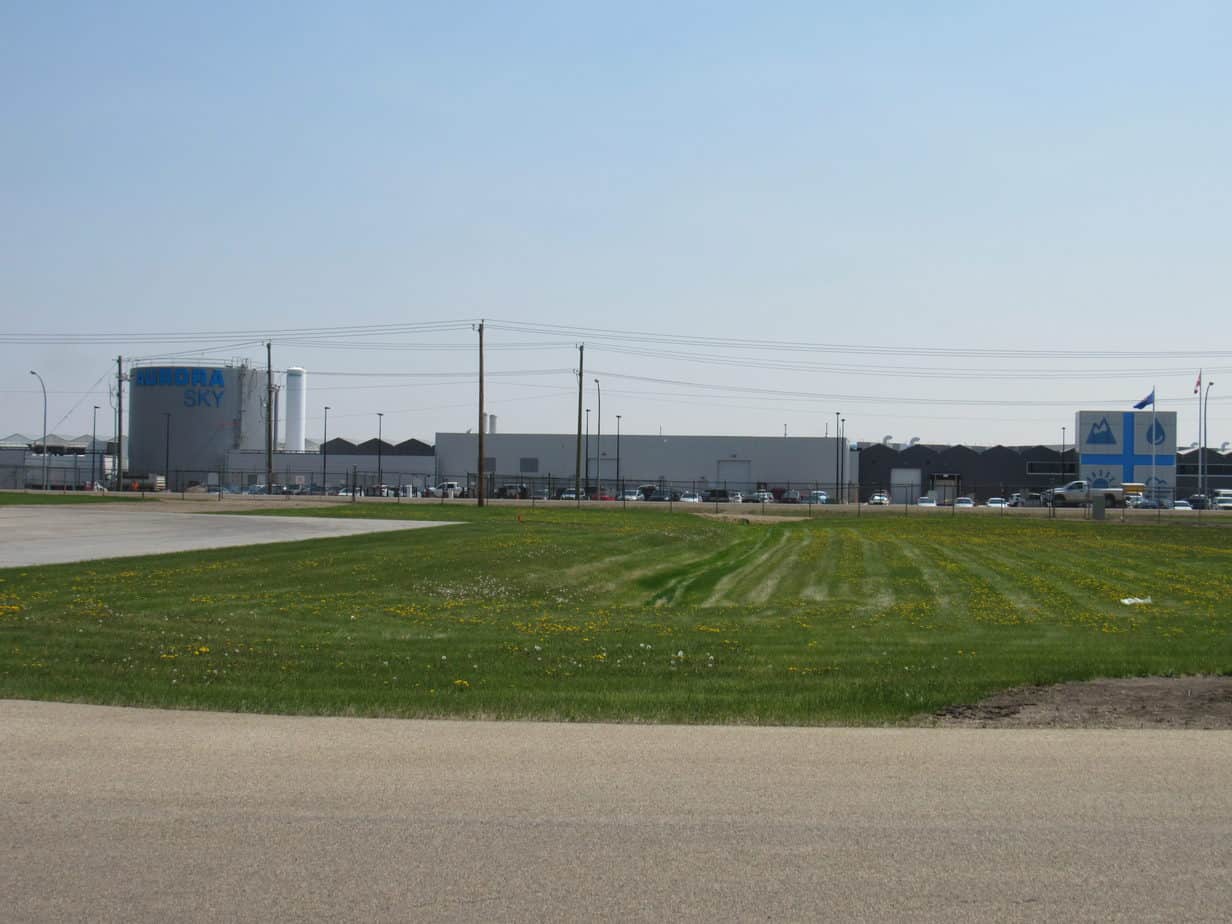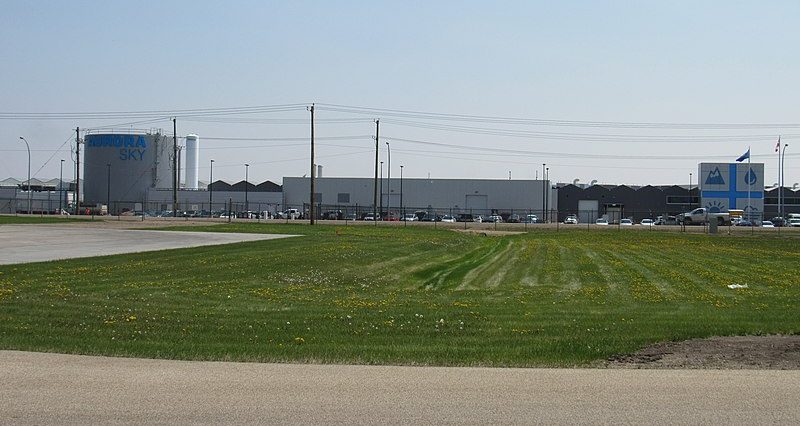
 Aurora Cannabis (Aurora Cannabis Stock Quote, Chart, News, Analysts, Financials TSX:ACB) received a downgrade from ATB Capital Markets on Thursday after the company’s quarterly numbers resulted in top and bottom-line misses. In an update to clients, ATB analyst David Kideckel said near-term uncertainty and lack of visibility on international growth avenues brought on the more cautious stance, where Kideckel dropped his rating from “Sector Perform” to “Underperform.”
Aurora Cannabis (Aurora Cannabis Stock Quote, Chart, News, Analysts, Financials TSX:ACB) received a downgrade from ATB Capital Markets on Thursday after the company’s quarterly numbers resulted in top and bottom-line misses. In an update to clients, ATB analyst David Kideckel said near-term uncertainty and lack of visibility on international growth avenues brought on the more cautious stance, where Kideckel dropped his rating from “Sector Perform” to “Underperform.”
Edmonton-based Aurora Cannabis announced its third quarter fiscal 2021 results on Thursday for the period ended March 31, 2021, with the company showing net sales of $55.2 million, down from $73.5 million a year earlier, and an adjusted EBITDA loss of $24.0 million compared to a loss of $49.6 million a year earlier.
Consumer cannabis net revenue took a major hit, falling by 53 per cent year-over-year to $18.0 million, as ACB pointed to COVID-19-related challenges in provincial distribution and consumer access to in-store retail shopping as a factor in the drop. Medical cannabis net revenue rose by 17 per cent year-over-year to $36.4 million, attributed to strength in the international and Canadian med cannabis markets (international medical sales shot up by 134 per cent year-over-year).
The company noted its medical cannabis adjusted gross margin stayed strong at 59 per cent compared to 60 per cent a year ago, also underlining what it called a tighter management of cash flow to fund operations. Meanwhile, the company is still flush, with a declared $525 million cash balance as of May 12, 2021.
In his quarterly comments, CEO Miguel Martin said Aurora’s domestic medical market strength should translate into global adult-use success down the road as more medical jurisdictions move to open up adult-use.
“Consistent with many of our peers, the quarter presented challenges in the Canadian adult-use segment,” Martin wrote in a press release. “This reinforces the importance of Aurora’s broadly diversified business model that balances domestic medical, international medical and adult-use platforms. To that point, we delivered the strongest performance in domestic medical and the best results in international medical cannabis of any Canadian LP during the period.”
Looking at the quarterly numbers, Aurora’s $55.2 million in net sales and adjusted EBITDA loss of $24.0 million compared to Kideckel’s estimates of $72.0 million and negative $6.5 million, respectively, while the consensus call was for $69.0 million and negative $9.9 million, respectively.
Kideckel said Aurora is taking a hit to its results as the company transitions to an asset-light model, pointing out that Aurora plans to reduce costs of $60-$80 million over the next 12-18 months, with $40-$60 million expected to come from costs of good sold and $20 million from SG&A.
“The Company expects to achieve positive EBITDA without having to rely on sales growth, and management has provided no guidance as to when ACB might come back to growth,” Kideckel wrote.
“We are encouraged by ACB’s downsizing but we believe the near-term growth outlook is uncertain given the Company’s dwindling sales in the Canadian recreational market, our lack of visibility over international medical cannabis sales and still immaterial sales from US CBD,” he said.
“As such, we are moving to a more cautious stance on the stock,” Kideckel said. “Over the long-term, we maintain our view of ACB as one of the leaders in cannabinoid-based science, including biosynthetic cannabinoids (with Anandia), which we believe will be a key long-term value driver for the entire sector, as well as a leader in medical cannabis, with attractive growth optionality over the long-term.”
The analyst noted that Aurora’s adjusted gross profit was hit by a $21.5-million inventory provision and an $88.0 inventory impairment charge as a result of inventory deemed as lower-potency or in excess of the projected market demand.
Kideckel said Aurora is losing market share in the Canadian cannabis industry, going from second place with about a 15-per-cent share in mid 2020 (behind only Tilray) to now 5.9 per cent as of April, 2021, which puts it also behind Canopy Growth, Village Farms International and Redecan.
All is not lost for ACB, however, as Kideckel sees a return to growth as the company implements its business strategy and transformation plan.
“We note that market share is highly volatile in the Canadian cannabis market; therefore, ACB has an attractive opportunity to gradually increase presence in premium segments which support higher-margin sales. In addition, given ACB’s presence in international medical cannabis markets (notably with increasing sales in Germany) as well as in the US CBD market (Reliva has products in over 23,000 stores in the US), we believe that the Company is well-positioned and has significant optionality to drive sales growth outside of Canada,” Kideckel said.
With his “Underperform” rating, Kideckel has dropped his one-year price target from $13.00 to $7.50 per share, which at press time represented a projected return of negative 16 per cent.
Leave a Reply
You must be logged in to post a comment.





 Share
Share Tweet
Tweet Share
Share




Comment